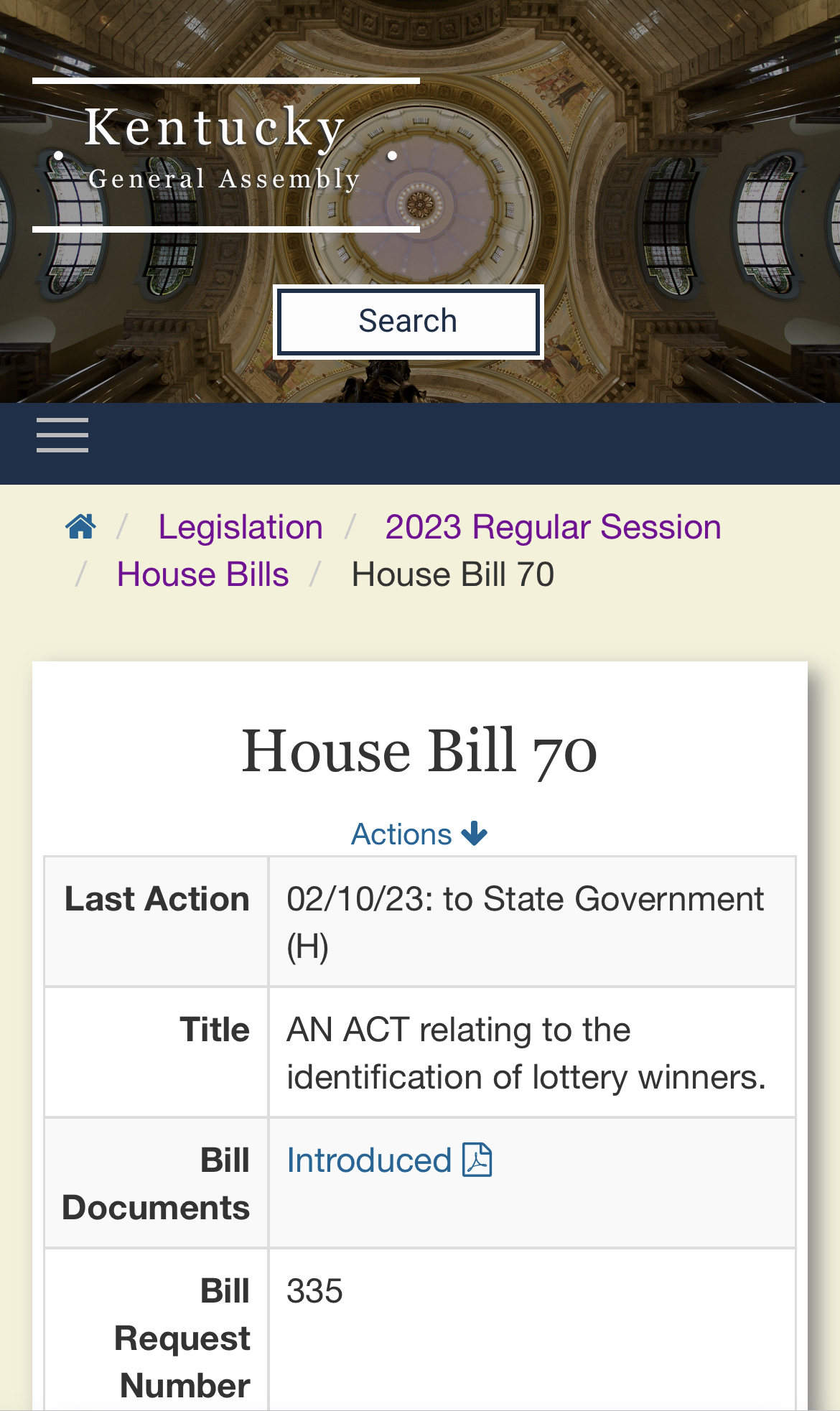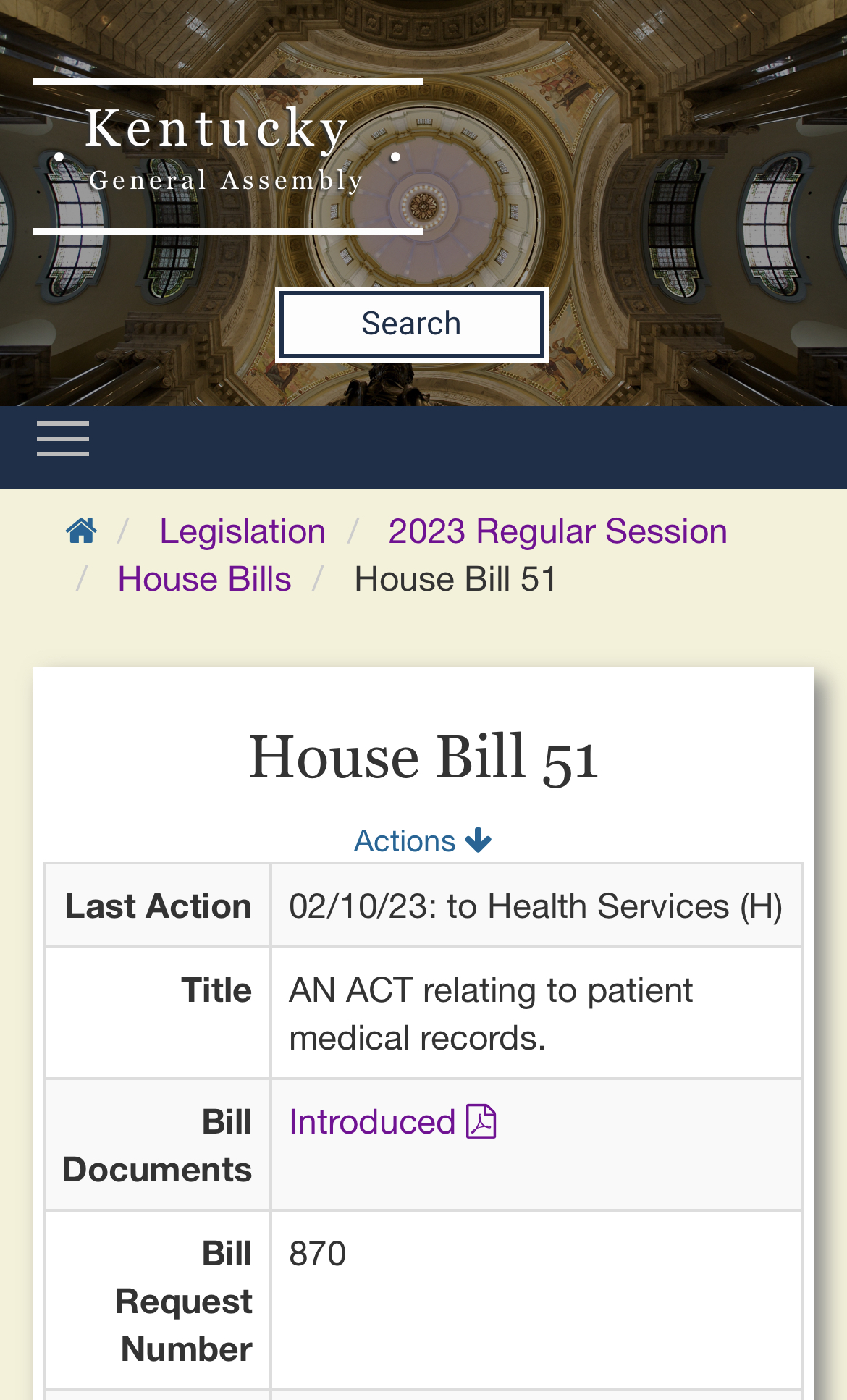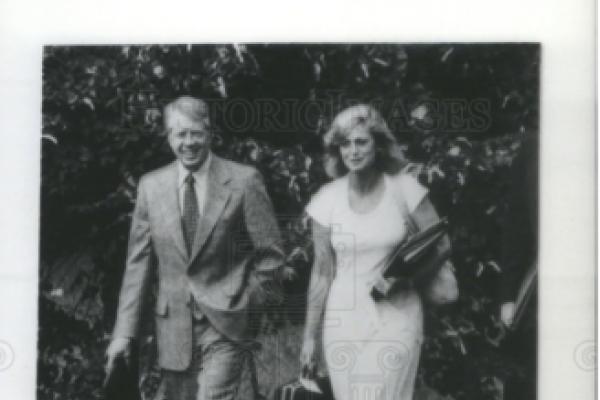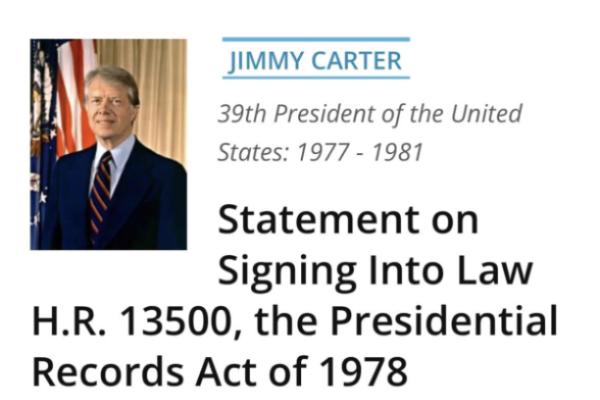

Two more records related bills — HB 70 and HB 51 — are moving.
https://apps.legislature.ky.gov/record/23rs/HB70.html
https://apps.legislature.ky.gov/record/23rs/HB51.html
These bills join SB 62 (prohibiting disclosure of “personal information,” as defined, under certain circumstances, as described) and HB 207 (prohibiting disclosure of internal police communications exchanged in “wellness programs” and including communications relating to “support systems, training, equipment, and technology necessary for an employee to perform his or her job”) on the fast track to passage.
https://kyopengov.org/blog/bills-creating-new-exceptions-are-moving
HB 70, which we have described as unnecessary and redundant, has been assigned to the House State Government Committee.
That bill amends Chapter 154A of the Kentucky Revised Statutes by restricting the Kentucky Lottery from publishing the name or likeness of lottery prize winners whose winnings exceeds $7,000,000 if the winners prefer that their identifying information be withheld.
In addition, it amends the open records law by adding a new exception to the ever lengthening list of exceptions found in KRS 61.878, “to include the name, address or likeness of a winner of a lottery prize that exceeds $7,000,000. . . if the winner elects to have his or her identifying information withheld.”
This will likely be yet another open records exception that is rarely invoked — like the exception for records “confidentially disclosed to an agency and compiled and maintained for scientific research.” But that exception, which is found at KRS 61.878(1)(b), is not mirrored in a separate statute making the same records confidential and therefore incorporated into the open records law by KRS 61.878(1)(l). (KRS 61.878(1)(l) eliminates the need for duplicate open records exceptions for records/information “the disclosure of which is prohibited or restricted or otherwise made confidential by enactment of the General Assembly.”)
Nor are records protected under the proposed new open records exception almost certainly already protected under the “privacy” exception to the open records law, KRS 61.878(1)(a).
Absent an open records related public interest in the lottery winners’ personal identifying information — for example, a claim that the Lottery Corporation rigged the game to ensure that a particular winner won — the substantiated privacy interest of a lottery winner in avoiding predatory “types” seeking to exploit the winner’s good fortune would likely be deemed superior to the generally unsubstantiated public interest, and the Lottery Corporation’s denial of access to identifying information, in this context, would likely be affirmed by the attorney general and the courts.
But so be it. Enact a new exception, bringing us to 19 exceptions — 21 exceptions if SB 62 and HB 207 are enacted — and recognizing that there may be more to come in this short legislative session.
https://apps.legislature.ky.gov/law/statutes/statute.aspx?id=51393
Lawmakers must, however, put a pause on HB 51, relating to patient medical records and eliminating the 30 year old right of patients to one free copy of their medical records and capping the fees for a second copy to one dollar per page.
Assigned to the House Health Services Committee on February 10, HB 51 amends KRS 422.317 by repealing the one free copy mandate and establishing a prepaid fee “not [to] exceed twenty dollars for medical records five pages or less in length and one dollar per page for each page copied after the first five pages and the actual cost of mailing.”
In January, we wrote:
“KRS 422.317 was enacted in 1994 in response to mounting concerns about unconscionable fees imposed on patients by hospitals and medical providers for copies of their own medical records. This included hospitals and medical providers that outsourced copying of the patients' medical records to profit-driven vendors and thereafter demanded prohibitively excessive fees.
“It was an issue that regularly presented itself to the Office of the Attorney General in the context of excessive copying fee disputes between public hospitals and patients. The open records law limits copying fees to actual costs incurred, excluding staff costs.
“These disputes culminated in the 1995 case, Hardin County v. Valentine, in which the Kentucky Court of Appeals [noted the recent passage of KRS 422.317 and] twice emphasized that that ‘while $1.00 may be reasonable for one of a few pages, other considerations become relevant for copying large records.’
“In 2013, the Kentucky Court of Appeals revisited KRS 422.317, rejecting a claim that the statute was unconstitutional. The court held:
”‘Placing this minimal burden on health care providers is rationally related to the legislature’s objective of ensuring that all patients, including the economically disadvantaged, have free access to one copy of their medical records.’”
http://opinions.kycourts.net/coa/2012-CA-000563.pdf (http://opinions.kycourts.net/coa/2012-CA-000563.pdf)
”The court was satisfied that ‘the state interest in providing medical records to patients outweighs any minor inconvenience to the providers.’
”Rep. Kim Moser is not. She proposes a return to those halcyon days of what will be, at least for some, cost prohibitive medical records.”
We continue to doubt that HB 51:
“will do anything to relieve the purported ‘burden’ on hospitals and healthcare providers or lower ‘overall health care costs.’
“But there can be no doubt that -- as past lawmakers and the courts recognized -- it will harm economically disadvantaged patients.”
This is what we have come to expect from a legislative majority that regularly “takes from the poor and gives to the rich.”
https://kyopengov.org/blog/lawmaker-proposes-end-30-year-old-law-creati…
There is broad opposition to HB 51 that may, or may not, be able to surmount the considerable forces of hospital and physician associations.



